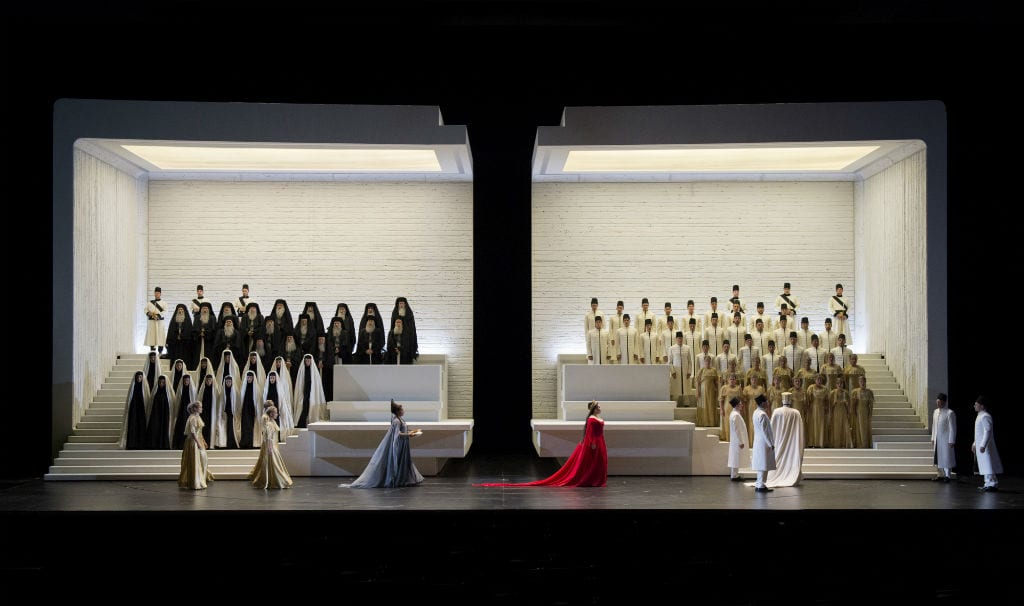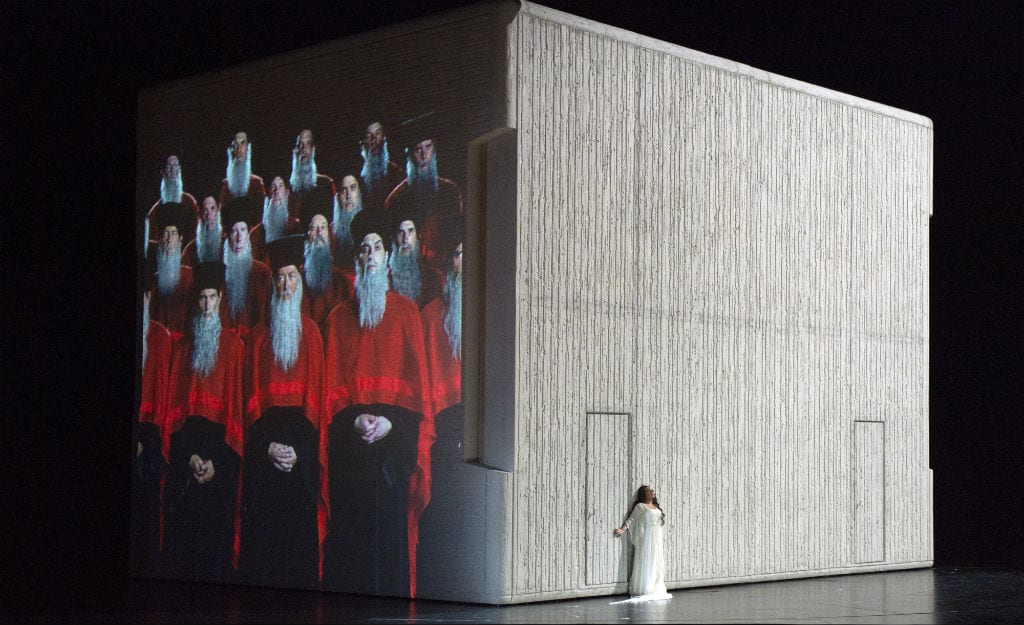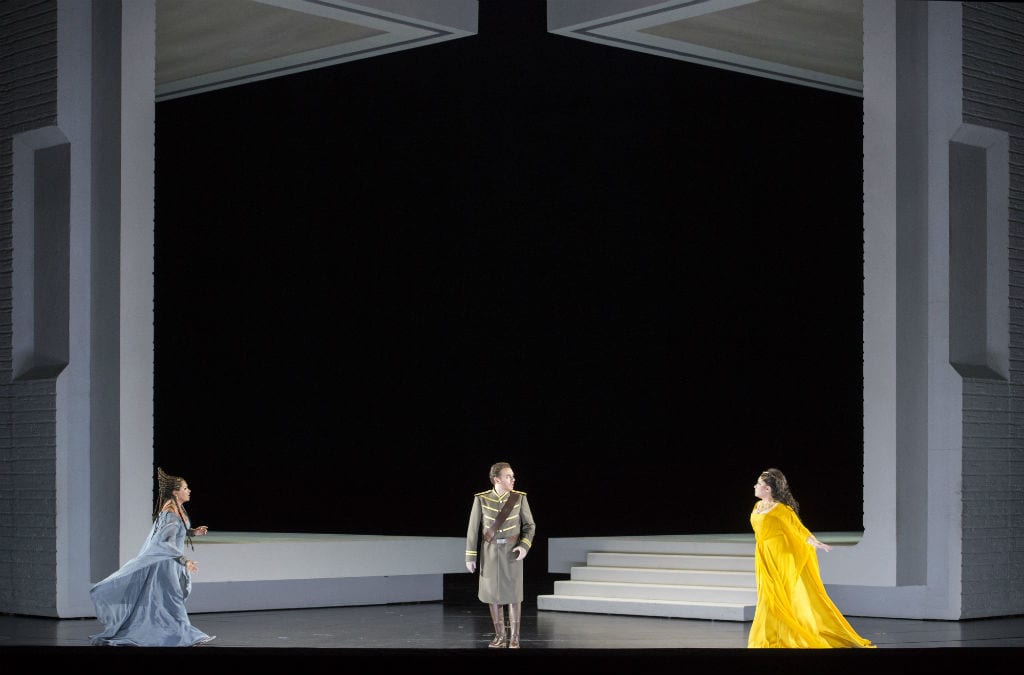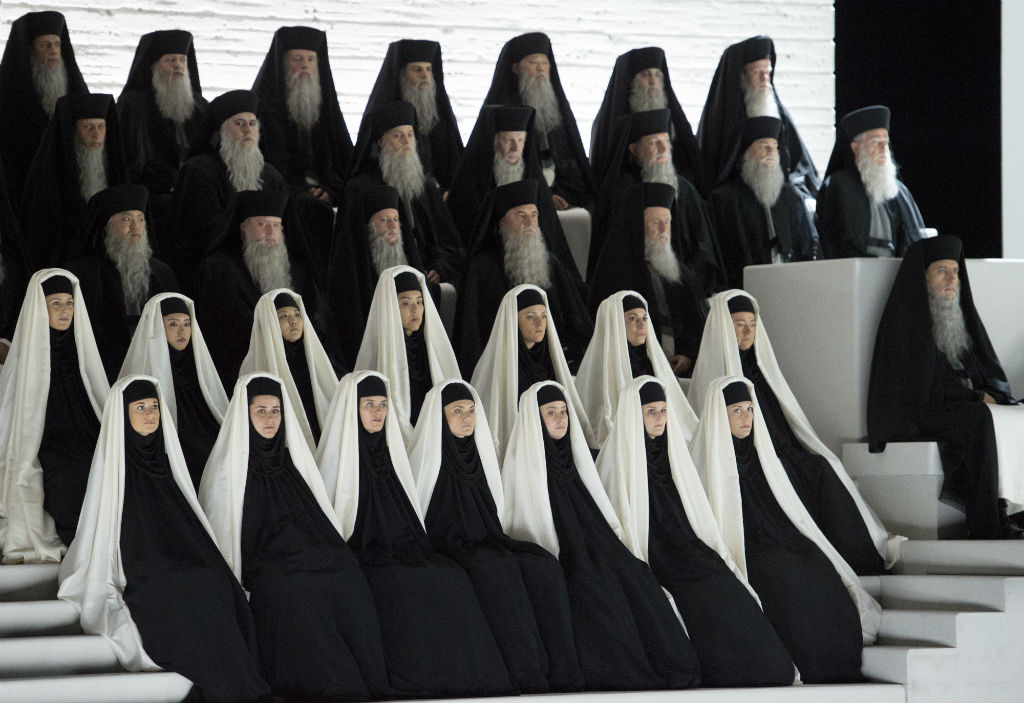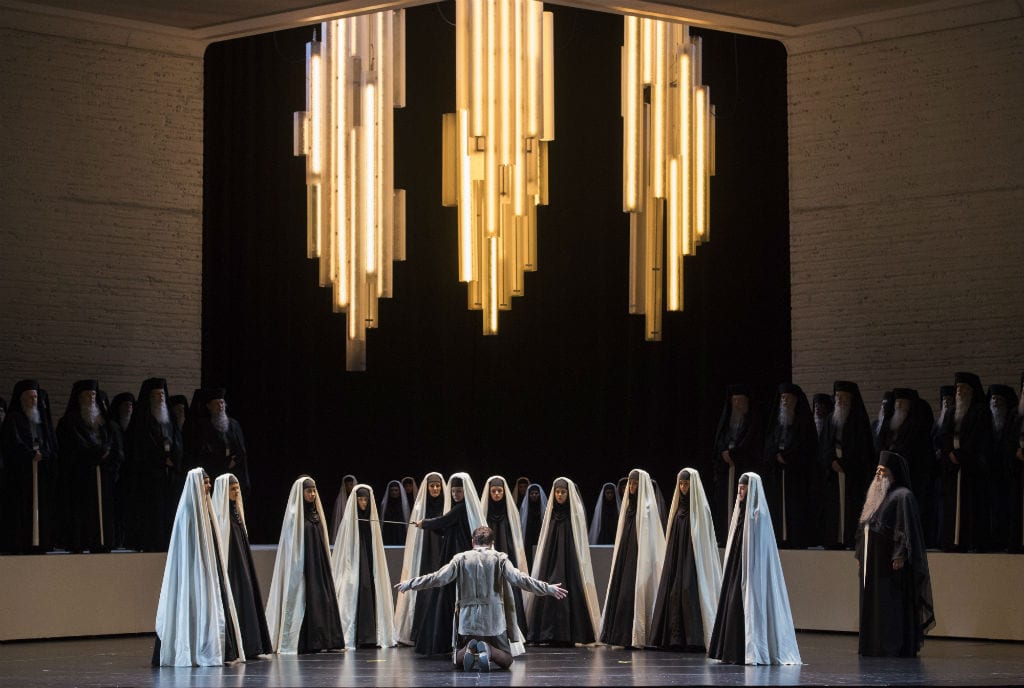Listening to Riccardo Muti conducting Verdi is an absolute treat. His deep love and understanding of the composer’s music was evident from the first measures of the prelude when Aida’s chromatic leitmotiv was delivered with firmness, great dynamics, and breathtaking pauses. Muti notoriously leans to essentiality, trying to be as faithful as possible to the composer’s spirit. He accelerates the tempi in the less relevant parts, cutting unnecessary showing off, and gives emphasis to the more dramatic moments. The superb Wiener Philarmoniker orchestra definitely helped fulfill the conductor’s vision.
The musical accomplishment paired strikingly with the radical choices of Iranian director Shirin Neshat, a photographer and video artist in her first opera production. Nothing is left of pyramids, endless military parades, temples or the pomp of most classical productions. The director has stripped the opera to the essential and transposed it into a stylised idea of the Middle East by using extremely minimal staging and linearly elegant costumes. The action revolves around two white concrete blocks that combine into different shapes according to the scene and, in the end, close down into a suffocating box. Video art clips are projected onto the white walls, amplifying the emotions of the characters, while a neon light installation evokes the stalactite ceilings of Arab architecture.
After overcoming my initial perplexity, it seemed that the fewer frills shown, the more the opera gained, extracting the timeless message that Verdi wanted to communicate to us.
In fact, if the Radamès-Aida-Amneris love triangle is a bit stereotypical and if his idea of Egypt follows more the “Orientalist” fashion of his time rather than reflecting any serious research, his political views still hold up at the core of this opera. In Verdi’s Egypt, much as in a Europe ravaged by wars, entire populations were at the mercy of military power games with the blessing of God. In Aida, hordes of refugees long for their homeland, a hero is torn between love and faithfulness to his country and is finally crushed by the absolute power of the Pharaohs and by an oppressive religious power that knows no pity. The moral judgment between winners and defeated is not clear cut: Amonasro doesn’t hesitate to use the seductive power of Aida to get war secrets from his enemy. In this hopeless context the two lovers surrender to their deaths more as a personal choice than as the result of a condemnation, to reach peace in a higher world. However, in this production these themes remain somehow abstract, vague, and too politically correct. I feel the director should have been a bit more daring in making the link to contemporary refugees and religious wars, especially since in many interviews, as an exiled woman herself, she asserts that she strongly identifies with Aida.
Francesco Meli sang the beautiful tenor lines of Radamès with passion and intensity. And Luca Salsi gave a strong performance as a manipulative Amonasro with a strong thirst for vengeance. Anna Netrebko’s interpretation of Aida was simply outstanding. She has shifted from bel canto to more dramatic roles over the past few years. It perfectly suits her velvety, dark voice and acting style. She sang with power and elegance, associating an appropriate gesture to every note. Ekaterina Semenchuk, in the role of Amneris, appeared a bit restrained partly because her vocal power didn’t match that of the other main characters, partly because she acted in stereotypical gestures.
This is a visually stunning work executed nearly to perfection. It brought new interpretative ideas to an opera often performed in stale productions. Not to be missed.

